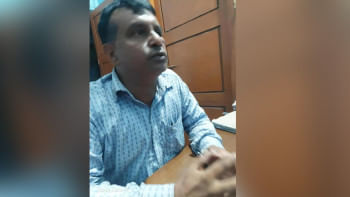Rohingya children in Cox's Bazar camps faced brunt of Cyclone Mocha: Unicef

One million Rohingya refugees living in the Cox's Bazar refugee camp, half of whom are children, faced the brunt of Cyclone Mocha, said Unicef yesterday.
Children reside in the fragile temporary shelters in the camps, which are particularly vulnerable to mudslides, it also claimed.
Catherine Russell, executive director of Unicef, said, "Some of the world's most vulnerable children and families are, yet again, at the sharp end of a crisis they didn't create. The areas hit hardest by the storm are home to communities already living through conflict, poverty, instability, and climate and environmental shocks.
"As we urgently assess and respond to the immediate needs of children in the aftermath of this cyclone, we know with certainty that the best way to save and improve the lives of children and their families is by finding long-term solutions," he added.
On May 14, Cyclone Mocha hit Bangladesh and Myanmar, bringing torrential rain, storm surges, and winds of up to 175 mph.
According to Unicef, the refugee camps are among the world's most densely populated areas, placing children in danger from sickness, malnutrition, neglect, exploitation, and violence.
Besides, it noted that the situation is particularly worrisome in Myanmar. More than 16 million people -- 5.6 million of them children -- including 1.2 million internally displaced people of Rohingya, ethnic Rakhine and other communities, were in the path of the cyclone in Rakhine State.

 For all latest news, follow The Daily Star's Google News channel.
For all latest news, follow The Daily Star's Google News channel. 



Comments